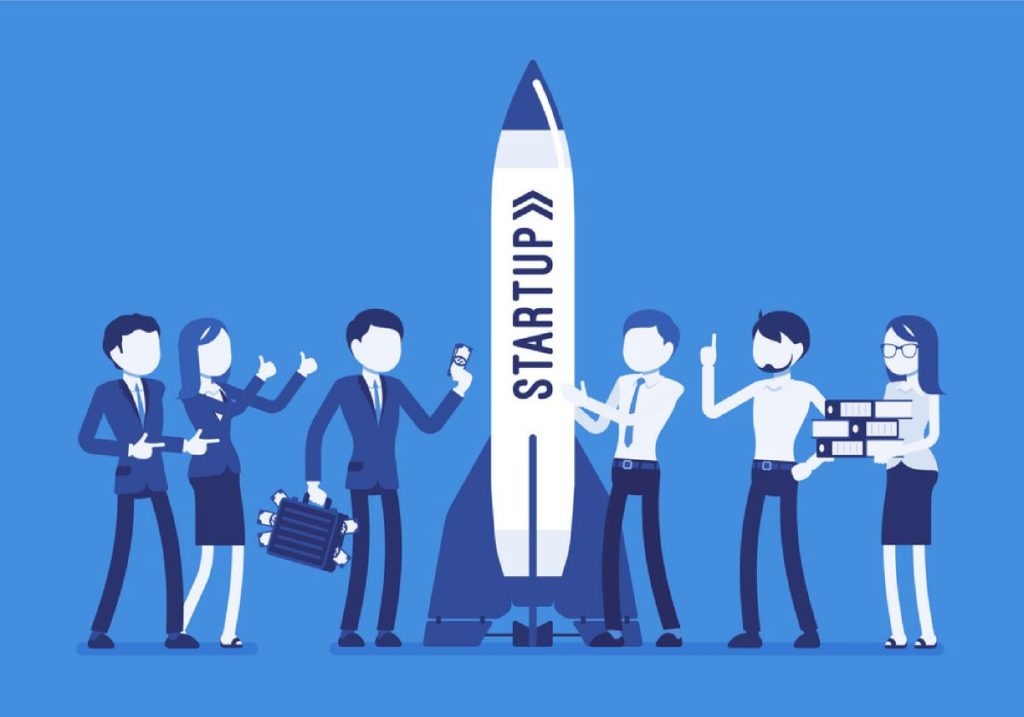Why Attend Startup Conferences: Unlocking Networking Opportunities
Attending startup events and conferences is a crucial step in building a successful startup. These events provide a platform for entrepreneurs, innovators, and industry leaders to connect, learn, and grow. By attending startup conferences, startups can unlock valuable networking opportunities that can help drive business success.
Networking is a critical aspect of startup growth, as it allows founders to establish relationships with potential investors, partners, and customers. Startup conferences offer a chance to connect with other entrepreneurs who may be facing similar challenges, providing a supportive community that can help navigate the startup journey.
Startup events and conferences also feature keynote speakers, panel discussions, and workshops that provide valuable insights into the latest industry trends and innovations. By attending these events, startups can gain a deeper understanding of the market, identify new opportunities, and stay ahead of the competition.
Moreover, startup conferences offer a chance to connect with potential investors, who are often in attendance to identify promising startups. By building relationships with investors, startups can increase their chances of securing funding, which is critical for growth and scalability.
In addition to networking opportunities, startup events and conferences also provide a chance to learn from industry experts and thought leaders. These events often feature workshops, masterclasses, and one-on-one mentoring sessions that provide valuable guidance and support.
Overall, attending startup events and conferences is an essential part of building a successful startup. By unlocking networking opportunities, learning from industry experts, and staying ahead of the competition, startups can drive business growth, secure funding, and achieve long-term success.
How to Choose the Right Startup Event for Your Business
With the numerous startup events and conferences taking place throughout the year, it can be overwhelming to decide which ones to attend. However, selecting the right events can make a significant difference in the success of your startup. To ensure you’re making the most of your time and resources, consider the following factors when choosing a startup event:
Event size is a crucial factor to consider. Larger events can provide more opportunities for networking, but may also be more overwhelming. On the other hand, smaller events can offer more intimate settings for meaningful connections. Consider what type of environment will best suit your business needs.
Industry focus is another essential factor to consider. Attending events that are specifically tailored to your industry can provide valuable insights and connections. Research the event’s focus and ensure it aligns with your business goals.
The speaker lineup is also a critical aspect to consider. Look for events that feature industry experts and thought leaders who can provide valuable insights and advice. A strong speaker lineup can make an event more worthwhile and provide opportunities for learning and growth.
Additionally, consider the event’s format and schedule. Will there be opportunities for networking, or will the event be primarily focused on presentations? Ensure the event’s format aligns with your business needs and goals.
Finally, research the event’s attendees and sponsors. Are they aligned with your business goals and target market? Attending events with relevant attendees and sponsors can provide valuable opportunities for connections and growth.
By considering these factors, you can make informed decisions about which startup events and conferences to attend. Remember, the goal is to find events that will provide the most value and opportunities for your business. By being strategic in your event selection, you can maximize your startup’s potential for success.
Maximizing Your Startup Event Experience: Preparation is Key
To get the most out of startup events and conferences, preparation is essential. By researching attendees and speakers, crafting a strong elevator pitch, and setting clear goals for the event, you can maximize your startup’s potential for success.
Researching attendees and speakers is a crucial step in preparing for startup events. Look for events that feature industry experts and thought leaders who can provide valuable insights and advice. Research the attendees and speakers to understand their backgrounds, interests, and areas of expertise. This will help you identify potential connections and opportunities for collaboration.
Crafting a strong elevator pitch is also essential for startup events. Your elevator pitch should be a concise and compelling summary of your startup’s mission, products, and services. It should be no more than 30 seconds long and should be delivered in a clear and confident manner. Practice your elevator pitch before the event to ensure you can deliver it effectively.
Setting clear goals for the event is also important. What do you hope to achieve from attending the event? Are you looking to connect with potential investors, partners, or customers? Are you looking to learn from industry experts and thought leaders? By setting clear goals, you can focus your efforts and make the most of your time at the event.
In addition to researching attendees and speakers, crafting a strong elevator pitch, and setting clear goals, it’s also important to prepare your startup’s marketing materials. Make sure you have a clear and concise summary of your startup’s mission, products, and services. Have a professional logo, business cards, and any other marketing materials that you may need.
Finally, make sure you have a plan for following up with new contacts after the event. This can include sending a follow-up email or LinkedIn request, or scheduling a meeting to discuss potential collaboration opportunities. By having a plan in place, you can ensure that you don’t let new connections go cold.
By preparing for startup events and conferences, you can maximize your startup’s potential for success. Remember to research attendees and speakers, craft a strong elevator pitch, set clear goals, prepare your marketing materials, and have a plan for following up with new contacts. With these tips, you can make the most of your time at startup events and conferences.
Top Startup Conferences to Attend: A Roundup of Industry Favorites
Startup events and conferences are a great way to connect with other entrepreneurs, learn from industry experts, and stay up-to-date with the latest trends and innovations. Here are some of the top startup conferences to attend, including events such as SXSW, Web Summit, and Slush.
SXSW is one of the most popular startup conferences in the world, attracting over 70,000 attendees each year. The event features a wide range of speakers, including industry experts, thought leaders, and successful entrepreneurs. SXSW also offers a variety of networking opportunities, including meetups, parties, and one-on-one mentoring sessions.
Web Summit is another highly-regarded startup conference, featuring over 1,000 speakers and 70,000 attendees. The event focuses on the latest trends and innovations in the tech industry, including AI, blockchain, and cybersecurity. Web Summit also offers a variety of networking opportunities, including meetups, workshops, and one-on-one mentoring sessions.
Slush is a popular startup conference held in Helsinki, Finland, attracting over 20,000 attendees each year. The event features a wide range of speakers, including industry experts, thought leaders, and successful entrepreneurs. Slush also offers a variety of networking opportunities, including meetups, parties, and one-on-one mentoring sessions.
Other notable startup conferences include TechCrunch Disrupt, Startup Grind, and Collision. These events offer a wide range of speakers, networking opportunities, and learning experiences, making them a great way to connect with other entrepreneurs and stay up-to-date with the latest trends and innovations.
When attending startup conferences, it’s essential to have a clear plan and strategy in place. This includes researching the speakers and attendees, crafting a strong elevator pitch, and setting clear goals for the event. By being prepared and focused, you can make the most of your time at startup conferences and achieve your business goals.
Startup conferences and events are a great way to connect with other entrepreneurs, learn from industry experts, and stay up-to-date with the latest trends and innovations. By attending these events, you can gain valuable insights, make meaningful connections, and drive business growth.
Startup Event Formats: What to Expect from Conferences, Meetups, and More
Startup events and conferences come in a variety of formats, each with its own unique benefits and drawbacks. Understanding the different types of events can help you make the most of your time and resources. Here are some of the most common startup event formats:
Conferences are one of the most popular types of startup events. These events typically feature a series of keynote speakers, panel discussions, and workshops. Conferences are a great way to learn from industry experts and thought leaders, and to network with other entrepreneurs and investors.
Meetups are smaller, more informal events that are often focused on a specific topic or industry. These events are a great way to connect with other entrepreneurs and professionals who share similar interests and goals.
Hackathons are events where developers, designers, and entrepreneurs come together to build and launch new products or services. These events are a great way to learn from others, get feedback on your ideas, and build a new product or service.
Workshops are hands-on events where attendees can learn new skills and techniques. These events are a great way to learn from industry experts and to get practical experience with new tools and technologies.
Networking events are events that are specifically designed to help entrepreneurs and professionals connect with each other. These events are a great way to build relationships, find new business opportunities, and learn from others.
When choosing a startup event, it’s essential to consider the format and what you hope to achieve. By understanding the different types of events, you can make the most of your time and resources, and achieve your business goals.
Startup events and conferences are a great way to connect with other entrepreneurs, learn from industry experts, and stay up-to-date with the latest trends and innovations. By attending these events, you can gain valuable insights, make meaningful connections, and drive business growth.
Whether you’re looking to learn from industry experts, build new relationships, or launch a new product or service, there’s a startup event format that’s right for you. By understanding the different types of events, you can make the most of your time and resources, and achieve your business goals.
Networking Strategies for Startup Events: Making Meaningful Connections
Networking is a crucial aspect of startup events and conferences. By making meaningful connections with other entrepreneurs, investors, and industry experts, you can gain valuable insights, build relationships, and drive business growth. Here are some effective networking strategies for startup events:
Before the event, research the attendees and speakers to identify potential connections. Look for people who share similar interests, goals, or industries. This will help you to focus your networking efforts and make the most of your time.
When initiating conversations, start with a strong elevator pitch that clearly communicates your startup’s mission, products, and services. Be confident, enthusiastic, and authentic in your approach. Avoid using jargon or technical terms that may confuse or intimidate others.
Building relationships is key to successful networking. Take the time to listen to others, ask questions, and show genuine interest in their work. This will help to establish trust and credibility, and can lead to meaningful connections and collaborations.
Following up with new contacts is essential to maintaining relationships and driving business growth. Send a follow-up email or LinkedIn request within 24 hours of meeting, and be sure to personalize your message. This will help to keep the conversation going and build momentum for future collaborations.
Networking is a two-way street. Be open to giving as well as receiving, and look for opportunities to help others. This can include sharing your expertise, providing feedback, or making introductions. By giving back to the community, you can build trust and credibility, and establish yourself as a thought leader in your industry.
Startup events and conferences offer a unique opportunity to connect with other entrepreneurs, investors, and industry experts. By employing effective networking strategies, you can make meaningful connections, build relationships, and drive business growth.
Remember, networking is about building relationships and providing value to others. By being genuine, enthusiastic, and authentic in your approach, you can establish yourself as a trusted and respected member of the startup community.
Measuring the Success of Startup Events: ROI and Beyond
Evaluating the success of startup events and conferences is crucial to understanding their impact on business growth. While measuring return on investment (ROI) is essential, it’s not the only metric to consider. Here are some key performance indicators (KPIs) to help you assess the success of startup events:
ROI is a critical metric for evaluating the success of startup events. It measures the financial return on investment, including revenue generated, leads converted, and deals closed. To calculate ROI, track the costs associated with attending the event, including registration fees, travel, and accommodation, and compare them to the revenue generated.
Lead generation is another important KPI for startup events. Track the number of leads generated, including email addresses, phone numbers, and social media connections. This will help you understand the potential for future business opportunities.
Assessing the impact on business growth is also essential. Track the number of new customers, partnerships, and collaborations generated as a result of attending the event. This will help you understand the long-term benefits of attending startup events.
Surveys and feedback forms can also provide valuable insights into the success of startup events. Collect feedback from attendees, speakers, and sponsors to understand what worked well and what didn’t. This will help you refine your strategy for future events.
Startup events and conferences offer a unique opportunity to connect with other entrepreneurs, investors, and industry experts. By evaluating the success of these events, you can refine your strategy, improve your ROI, and drive business growth.
When evaluating the success of startup events, consider both quantitative and qualitative metrics. Quantitative metrics, such as ROI and lead generation, provide a clear understanding of the financial impact. Qualitative metrics, such as feedback and surveys, provide a deeper understanding of the attendee experience and the potential for future business opportunities.
By incorporating these metrics into your evaluation strategy, you can gain a comprehensive understanding of the success of startup events and conferences. This will help you refine your strategy, improve your ROI, and drive business growth.
Staying Ahead of the Curve: How to Leverage Startup Events for Long-Term Success
Startup events and conferences offer a unique opportunity to connect with other entrepreneurs, investors, and industry experts. By leveraging these events, you can stay ahead of the curve and drive long-term success for your business. Here are some strategies for maintaining relationships, staying up-to-date with industry trends, and applying learnings to business operations:
Maintaining relationships is key to long-term success. After attending a startup event, be sure to follow up with new contacts and continue the conversation. This can include scheduling a meeting, sending a follow-up email, or connecting on social media.
Staying up-to-date with industry trends is also essential. Attend startup events and conferences to learn from industry experts and thought leaders. This will help you stay informed about the latest developments and innovations in your industry.
Applying learnings to business operations is critical to driving long-term success. Take the insights and knowledge gained from startup events and apply them to your business operations. This can include implementing new strategies, improving processes, and innovating products and services.
Startup events and conferences offer a unique opportunity to connect with other entrepreneurs, investors, and industry experts. By leveraging these events, you can stay ahead of the curve and drive long-term success for your business.
When attending startup events, be sure to take notes and reflect on the insights and knowledge gained. This will help you to apply the learnings to your business operations and drive long-term success.
Additionally, consider sharing your experiences and insights with others. This can include writing a blog post, creating a video, or sharing on social media. By sharing your experiences, you can help others to learn and grow, and establish yourself as a thought leader in your industry.
By leveraging startup events and conferences, you can stay ahead of the curve and drive long-term success for your business. Remember to maintain relationships, stay up-to-date with industry trends, and apply learnings to business operations.








